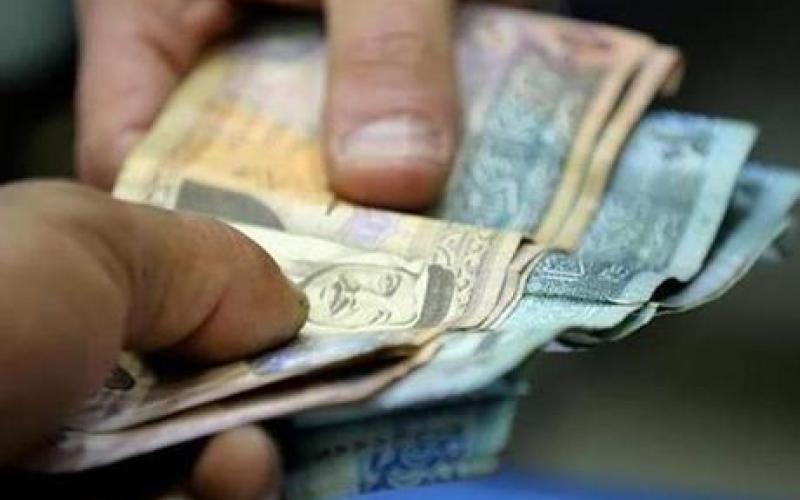Economists: Postponing Loan Installments Won’t Alleviate Financial Burdens or Revive the Economy

Written by Hadeel Albis
In preparation for Ramadan, many low-income families are forced to reconsider their spending priorities to ensure they can meet their basic needs. The holy month typically sees an increase in expenses due to its unique nature in comparison with the rest of the year.
According to a recent international report, 66% of Jordanians plan their Ramadan spending in advance, with a focus on shopping and stocking up on essentials. However, the report revealed that fewer families are saving in preparation for increased expenses.
Amidst this challenging financial situation, demands to postpone loan payments are reviewed annually in an effort to ease financial burdens that weigh heavily on families.
Opinions on postponement differ. Supporters claim that this move will enhance purchasing power and stimulate market activity. Opponents, on the other hand, warn of potential consequences, such as accumulation of debt and a delayed financial burden when loan payments are eventually due.
Economic expert Munir Daya believes that postponing loan installments is not a radical solution but merely a temporary relief to stimulate economic activity. He explained that the country is grappling with accumulating economic crises, including rising public debt, declining growth rates, and increasing unemployment and poverty rates. These challenges make salary increases in both the public and private sectors impossible.
Daya emphasized that postponing an installment by one month will not negatively affect Jordanian banks since they achieved record profits this past year—exceeding 1.5 billion dinars after tax. Banks have the ability to support struggling citizens. But at the end of the day, the decision is in their hands.
Official estimates indicate that 65% of Jordanians are borrowers, with over 60% of their salaries allocated to repaying loans related to housing, transportation, education, or even medical expenses. After paying these loans, many are left without enough money to cover other necessary expenses.
Economic expert Hussam Ayyash noted that individual loans account for approximately 40% of the country’s gross domestic product (GDP). This reflects a heavy reliance on borrowing to cover living expenses, he said.
Despite this, Ayyash emphasized that loans improve lives by allowing people to buy real estate, vehicles, and help meet their various needs.
Based on the latest report by the Central Bank, the total value of individual loans has reached approximately 14 billion dinars, marking an increase of around 170 million dinars since the end of 2023.
Economic Challenges Mount as Solutions Remain Elusive
Daya cited the challenges the government faced when raising the minimum wage from 260 to 290 Jordanian dinars, a process that required prolonged debates between supporters and opponents.
He attributed this to the absence of real solutions to increase individual incomes or raise salaries, which remains a significant challenge due to rising public debt, declining growth rates, increasing unemployment and poverty, and other crises affecting the national economy.
Daya explained that the difficult economic conditions citizens are experiencing stem from financial pressures and rising living costs, as most Jordanians face significant hardships due to stagnant wages and declining incomes, with no salary increases in sight.
He points out that unemployment and poverty have reached record levels, adding to the financial burdens on individuals—whether in the form of electricity, water, and energy bills, or the costs associated with winter heating, as well as religious and social obligations. He emphasizes that citizens' incomes are no longer sufficient to cover all these expenses.
Additionally, the impact of geopolitical tensions, wars, and conflicts in the region has slowed the growth of many economic sectors, affecting citizens who are already struggling with low wages. A staggering 450,000 Jordanians are unemployed – and the poverty rate has risen to over 30%, meaning that nearly one-third of Jordanians are living below the poverty line.
The solution lies, according to Daya, in empowering the economy, enhancing productivity, and encouraging private-sector investment, in addition to revitalizing various economic sectors such as tourism, transportation, mining, energy, and trade.
The average monthly household expenditure on food in Jordan is estimated at approximately $336 (240 dinars), as per a 2023 report by Fitch Solutions.
Meanwhile, data from the Department of Statistics for 2017/2018 shows that the average annual household expenditure on goods, services, and non-food items reached approximately 12,519 dinars. Food expenses accounted for 32.6% of total spending, equivalent to about 4,080 dinars per year, or 340 dinars per month.












































